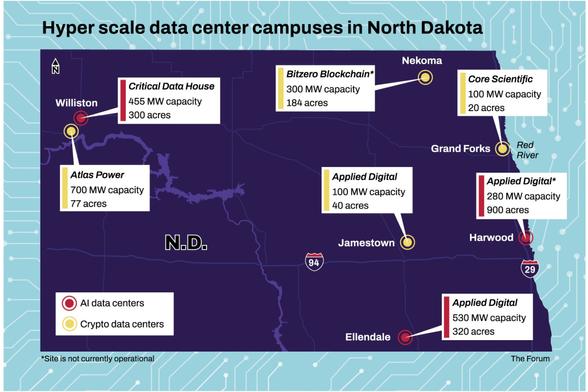2025-12-29 23:49:21
2025-12-29 15:30:00
Another Maine town just defeated a data center in its backyard. In this Women Talking 'Bout AI podcast, Joline Blais explains how her community rallied to the cause, and why AI is only a small part of the reason these are being built https://www.
2025-10-26 13:30:36
Not surprised, Apple already has ads in the App Store.
https://appleinsider.com/articles/25/10/26/ads-likely-coming-to-apple-maps-in-2026
2025-12-16 03:01:20
OpenAI's chief communications officer Hannah Wong will leave in January; Wong joined in 2021 and led PR during Sam Altman's brief ouster and return in 2023 (Maxwell Zeff/Wired)
https://www.wired.com/story/openai-chief-communications-officer-hannah-…
2025-11-27 18:40:01
Australia's renewable energy boom is coming—and it could solve a surprising problem.
Over the next decade, we'll build more clean energy infrastructure than the past 30 years combined. But where will thousands of construction workers live in regional towns already facing housing shortages?
A new RE-Alliance report shows worker accommodation can become lasting community assets: refurbished aged-care homes, workforce villages transformed into suburbs.
2025-10-19 11:46:42
Titan submarine: There were 3 fanless PCs and a switch in there before being imploded!
(Originally saw it on Scott Manley's video about this)
From:
https://data.ntsb.gov/Docket/Document/
2025-10-04 14:18:16
#NorthDakota 's "low population, energy resources, cold climate and lax business regulations" attract data centers according to InForum
http…
2025-10-05 01:00:42
The government’s biggest coal sales in more than a decade, is coming in a few days,
offering 600 million tons from publicly owned reserves next to strip mines in Montana and Wyoming.
The sales are a signature piece of Trump’s ambitions for companies to dig more coal from federal lands and burn it for electricity.
Yet most power plants served by those mines plan to quit burning coal altogether within 10 years, an Associated Press data analysis shows.
Three other mines po…
2025-10-09 09:26:31
Maritime Communication in Evaporation Duct Environment with Ship Trajectory Optimization
Ruifeng Gao, Hao Zhang, Jue Wang, Ye Li, Yingdong Hu, Qiuming Zhu, Shu Sun, Meixia Tao
https://arxiv.org/abs/2510.06946
2025-10-14 11:45:19
Toward Efficient and Privacy-Aware eHealth Systems: An Integrated Sensing, Computing, and Semantic Communication Approach
Yinchao Yang, Yahao Ding, Zhaohui Yang, Chongwen Huang, Zhaoyang Zhang, Dusit Niyato, Mohammad Shikh-Bahaei
https://arxiv.org/abs/2510.11514








